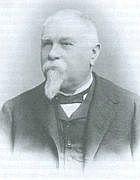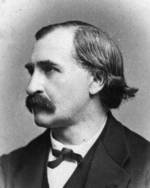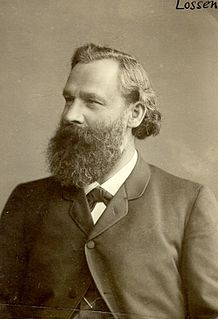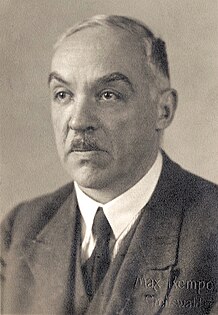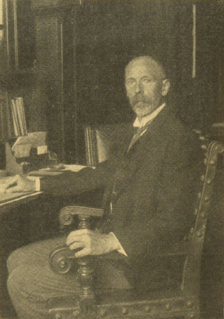Fritz Daniel Frech (26 March 1861 in Berlin – 28 September 1917 in Aleppo) was a German geologist and paleontologist.
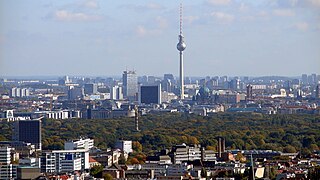
Berlin is the capital and largest city of Germany by both area and population. Its 3,748,148 (2018) inhabitants make it the second most populous city proper of the European Union after London. The city is one of Germany's 16 federal states. It is surrounded by the state of Brandenburg, and contiguous with its capital, Potsdam. The two cities are at the center of the Berlin-Brandenburg capital region, which is, with about six million inhabitants and an area of more than 30,000 km², Germany's third-largest metropolitan region after the Rhine-Ruhr and Rhine-Main regions.
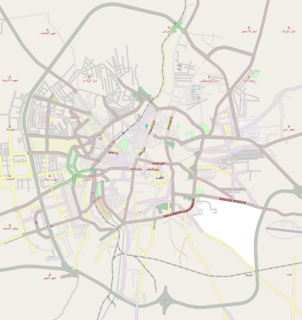
Aleppo is a city in Syria, serving as the capital of the Aleppo Governorate, the most populous Syrian governorate. With an official population of 4.6 million in 2010, Aleppo was the largest Syrian city before the Syrian Civil War; however, now Aleppo is probably the second-largest city in Syria after the capital Damascus.

A geologist is a scientist who studies the solid, liquid, and gaseous matter that constitutes the Earth and other terrestrial planets, as well as the processes that shape them. Geologists usually study geology, although backgrounds in physics, chemistry, biology, and other sciences are also useful. Field work is an important component of geology, although many subdisciplines incorporate laboratory work.
He studied natural sciences at the universities of Leipzig, Bonn and Berlin, receiving his doctorate in 1882 with a thesis on the coral fauna of the Late Devonian period in Germany. In 1887 he obtained his habilitation from the University of Halle, and in 1897 was appointed a full professor of geology and paleontology at the University of Breslau. In 1912 he was named vice-president of the newly formed Paläontologischen Gesellschaft. During World War I, he died in Aleppo while serving as a senior geologist under the command of the German army. [1]

The University of Bonn is a public research university located in Bonn, Germany. It was founded in its present form as the Rhein University on 18 October 1818 by Frederick William III, as the linear successor of the Kurkölnische Akademie Bonn which was founded in 1777. The University of Bonn offers a large number of undergraduate and graduate programs in a range of subjects and has 544 professors and 32,500 students. Its library holds more than five million volumes.
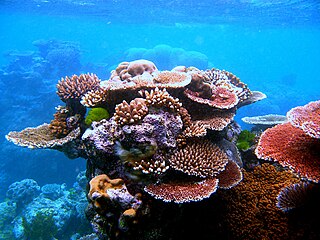
Corals are marine invertebrates within the class Anthozoa of the phylum Cnidaria. They typically live in compact colonies of many identical individual polyps. Corals species include the important reef builders that inhabit tropical oceans and secrete calcium carbonate to form a hard skeleton.
Habilitation defines the qualification to conduct self-contained university teaching and is the key for access to a professorship in many European countries. Despite all changes implemented in the European higher education systems during the Bologna Process, it is the highest qualification level issued through the process of a university examination and remains a core concept of scientific careers in these countries.
He published extensively on fossil invertebrates, being especially interested in extinct fauna from a stratigraphic-geological perspective. From 1913 he was an editor of the "Neues Jahrbuch für Mineralogie, Geologie and Paläontologie". [2] [1]

Stratigraphy is a branch of geology concerned with the study of rock layers (strata) and layering (stratification). It is primarily used in the study of sedimentary and layered volcanic rocks. Stratigraphy has two related subfields: lithostratigraphy and biostratigraphy.





